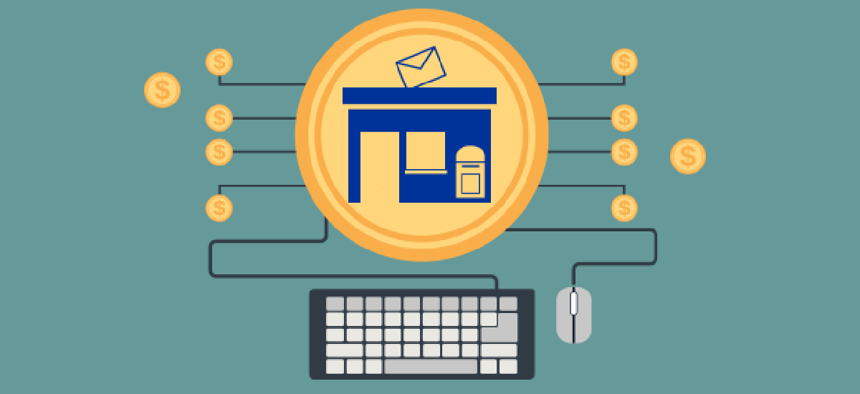Can the Postal Service put blockchain to work?

A new report explores the potential ways the technology behind Bitcoin could help USPS reinvent its mission.
The Bitcoin digital currency has yet to grab a true foothold in mainstream finance. When it comes to the underlying blockchain technology, however, it’s a different story.
Blockchain is a way of securing electronic transactions between parties without having to go through a third party such as a bank. Each step of the process is encrypted into the digital "chain," and any alteration of a previous block effectively voids the entire record. The financial sector is keen on blockchain's potential, and government agencies have also expressed curiosity. And now the U.S. Postal Service is looking into possible applications.
USPS' Office of the Inspector General has released a report on blockchain's postal potential -- in areas that range from financial services to supply chain, device and identity management.
The USPS already provides limited financial services such as international electronic money transfers. Incorporating blockchain into these services would improve and expand international money transfers, the report states, and would allow them to be made available worldwide.
Another suggestion in the report is for the USPS to create its own financial platform, known as a Postcoin platform. Although blockchain does not need a middleman, the report states that the USPS could facilitate the "fair, affordable, and transparent use" of the technology, and "help address many of the challenges that currently prevent individuals and businesses from taking advantage of [it]."
The lack of verified identities in a blockchain transaction is one of the weaknesses of the technology, but the USPS could create a digital identity system that allowed users to know that their transaction partners are real and have proof of ownership, the report states. The agency could expand on the virtual identity used by the customer to operate within a blockchain system with real-world identifiers, such as a person’s postal address.
The USPS could also leverage blockchain to identify packages faster or even to help create an "Internet of Postal Things." As the Internet of Things scales and more devices are brought online every day, the OIG researchers write, blockchain’s decentralized control and verification system could potentially allow devices to more securely record and transfer data.
The full report can be read here.
NEXT STORY: Agencies struggle under burden of legacy IT





